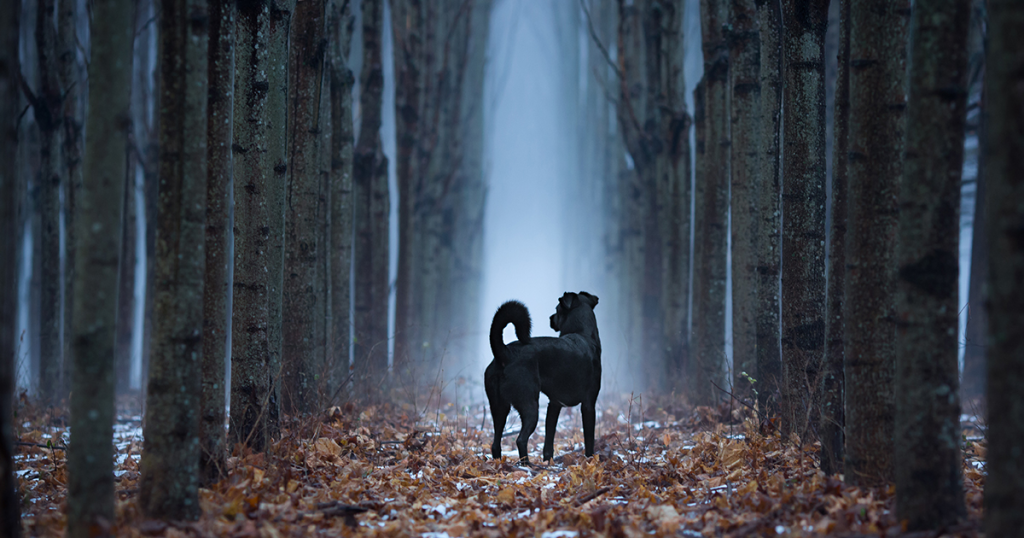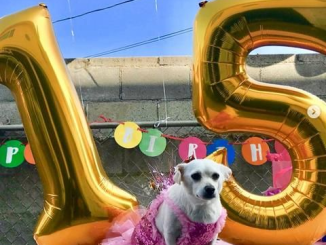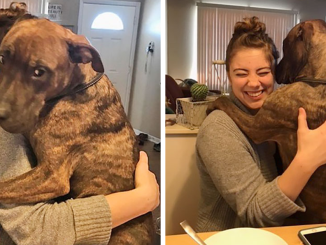Results indicated that not only can dogs detect Covid faster, but they can also do so in a non-intrusive manner – so no need to swab your throat or nose

Dogs can detect Covid-19 faster and more accurately than a PCR test, a new study shows.
Researchers looked at the ability of canines to recognise the virus and its variants, even when they are obscured by other viruses, like those from common colds and flu.
More than 400 scientists from over 30 countries contributed to the study as well as 147 scent dogs, according to the findings published in the Journal of Osteopathic Medicine.
After analysing many studies covering both field and clinical experiments, Professor Dickey and Junqueira found that dogs who are trained to sniff out scents are “as effective and often more effective” than antigen tests.
A total of 53 dogs were trained to sniff out Covid scents, while 37 were not and scientists found that the dogs that were not trained were in some cases “slightly superior” to those that were pre-trained.
“The previously untrained dogs have the advantage that they are not as prone to indicating on scents other than the Covid–19 associated scent,” the paper said.
The results indicated that not only can dogs detect Covid faster, but they can also do so in a non-intrusive manner. This means you won’t need to put a swab in your throat or nose.
How can dogs detect the virus?
This essentially comes down to the dog’s highly evolved nose with its ability to sense out smells quicker.
Dogs possess up to 300 million olfactory receptors in their noses, compared to about six million in humans. And the part of a dog’s brain that is devoted to analysing smells is about “40 times greater” than humans. Canines also have ‘neophilia’, which means they are attracted to new and interesting odours
And so, with all these enhancements, dogs can detect very low concentrations of odours associated with Covid infections.
“They can detect the equivalent of one drop of an odorous substance in 10.5 Olympic-sized swimming pools,” Professor Dickey said. “For perspective, this is about three orders of magnitude better than with scientific instrumentation.”
Scientists also found that in some cases, the animals were also able to detect the virus in pre-symptomatic and asymptomatic patients, “whose viral load was too low for conventional tests to work.”
Professor Dickey has said that dogs can also differentiate Covid and its different variants in the presence of other respiratory viruses. This included the common cold or flu.
“They’re much more effective. In fact, one of the authors that we quote in the paper commented that the RT-PCR test is not the gold standard anymore. It’s the dog. And they’re so quick,” he added. “They can give you the yes or no within seconds if they’re directly smelling you.”

How was the study conducted to see if dogs can really detect Covid-19?
In some studies, the dogs gave a person a quick sniff, sitting down to see if the person has Covid. In another study, the dog was given a sweat sample to smell for a few minutes.
The press release has said that scent dogs, such as beagles, basset hounds and coonhounds are the ideal candidates for sniffing out the virus, given their “natural tendencies to rely on odours to relate to the world.”
But the studies which the researchers analysed showed a variety of dogs were up for the challenge and were able to sniff out the Covid odour. With a few weeks of training, puppies, older dogs, purebred and mixed breeds, both male and female were able to sniff such odours out and “all performed admirably,” the Eureka Alert press release said.
Although there has been success with dogs detecting such viruses, researchers believe there are still many challenges with using dogs for medical diagnoses.
“There’s quite a bit of research, but it’s still considered by many as a kind of a curiosity,” said Professor Dickey.
In conclusion, Professor Dickey and Junqueira said after reviewing the studies, believe that scent dogs deserve “their place as a serious diagnostic methodology that could be particularly useful during future pandemics, potentially as part of rapid routine health screenings in public spaces.”
“Perhaps, most importantly, we argue that the impressive international quality and quantity of COVID scent dog research described in our paper for the first time, demonstrates that medical scent dogs are finally ready for a host of mainstream medical applications,” they added.
Can pets see ghosts?

Spooky season is in full swing, meaning there may be some heightened paranormal activity afoot. In fact, a survey conducted by YouGov revealed that two in five Americans believe ghosts are real, while one in five people say they’ve actually encountered one.
The existence of ghosts may be up for debate, but one of the most persistent beliefs is that our animals can sense spirits or paranormal activity. We’ve all witnessed the scene in scary movies or TV shows, when the tiny dog barks at the door but no one is there. Sure, the movie may be fake, but many pet owners have noticed their dog or cat do the same in real life.
Of course, there’s only one thought that enters a pet owner’s mind when this occurs – that their animal is obviously interacting with a ghost. To set the record straight, we spoke with two animal communicators – aka, pet psychics – to learn whether our animals are really channeling the other side.
Why do we believe our pets can see ghosts in the first place? According to Phoebe Hoffman, an animal communicator and intuitive guide based in New York City, it has a lot to do with their heightened senses.
“Pets are living off of energy, whether it’s our energy or energy that we are not privy to, because we’re so limited in our senses compared to them,” Hoffman tells us. “Now, can I say that what they’re seeing is ghosts? I don’t know that because I’ve never seen a ghost. I’m not seeing what they’re seeing, but I’ve had many experiences with my own animals – which happen to be cats – where they are having an absolute moment with something that’s there that only they can witness.”

It goes without saying that animals have senses that are unknown to humans. When it comes to our beloved canines, dogs have the ability to hear much higher-pitched noises than their owners. The average adult human can’t hear sounds above 20,000 Hertz (Hz), while dogs can hear sounds as high as 47,000 to 65,000 Hz, per the American Kennel Club.
Meanwhile, cats are known to have great eyesight, especially in the dark. According to Texas A&M University, felines can dilate their pupils in low-light settings and they have a special reflective layer called the tapetum lucidum, which can reflect more light to the back of the eye.
“Non-human animals sense things in different ways than humans do. Cats, for instance, the way they see things is different from the way humans see things. Their eyesight is different, they can definitely perceive energies that we can’t or things that aren’t visible to the human eye,” Olivia LaBarre, an animal communicator and Reiki specialist based in NYC, tells us. “Most of the animals I communicate with have increased senses beyond the five senses.”

But what about those undeniable moments when our dog or cat appears to be reacting – or interacting – with something we can’t see? When they begin to bark or meow at nothing visible, stand in the corner, play with an object that belonged to a deceased family member, or assume behaviours that are characteristic of a former pet? For LaBarre – who’s been an animal communicator and grief worker for five years – her clients have noticed that, after one of their pets dies, their living animal will even start taking on some of the behaviours of the animal who passed.
When these moments occur, it’s important to look out for certain signs or signals that your dog or cat’s behaviour has suddenly shifted. This can look like playing with something that isn’t there, tilting their head, arching their back, or wagging their tail.
As for what pet owners should do when they believe their beloved animal is interacting with a ghost, experts agree to just sit back and let it happen. “Allow it, observe it, and just pay attention because it might be about you. Humans are very unaware of the mysteries of the universe. Animals, they’re tapped in. They are aware that energy doesn’t die,” says Hoffman. “Just let it happen. It’s not a bad thing.”
However, there could be the slight off chance that a poltergeist from the next Paranormal Activity instalment just so happens to be living in your kitchen. Then, of course, it’s time to call in the experts… or an exorcist.
Our pets’ heightened senses – and sometimes their silly, quirky, and erratic behaviour – has played into the belief that dogs and cats can see ghosts. Still, there’s much uncertainty about whether this long-standing superstition is actually true.
“We are so limited in our ability to see what the naked eye cannot see. Animals have this window into watching spirits and energy,” says Hoffman. “But as far as a ghost? That I don’t know, but I know they’re seeing something.”
Although it continues to be a mystery whether our pets’ senses are able to pick up on energies or spirits, pay close attention to your dog or cat this spooky season. Who knows what life forms will be lurking this Halloween?



Leave a Reply